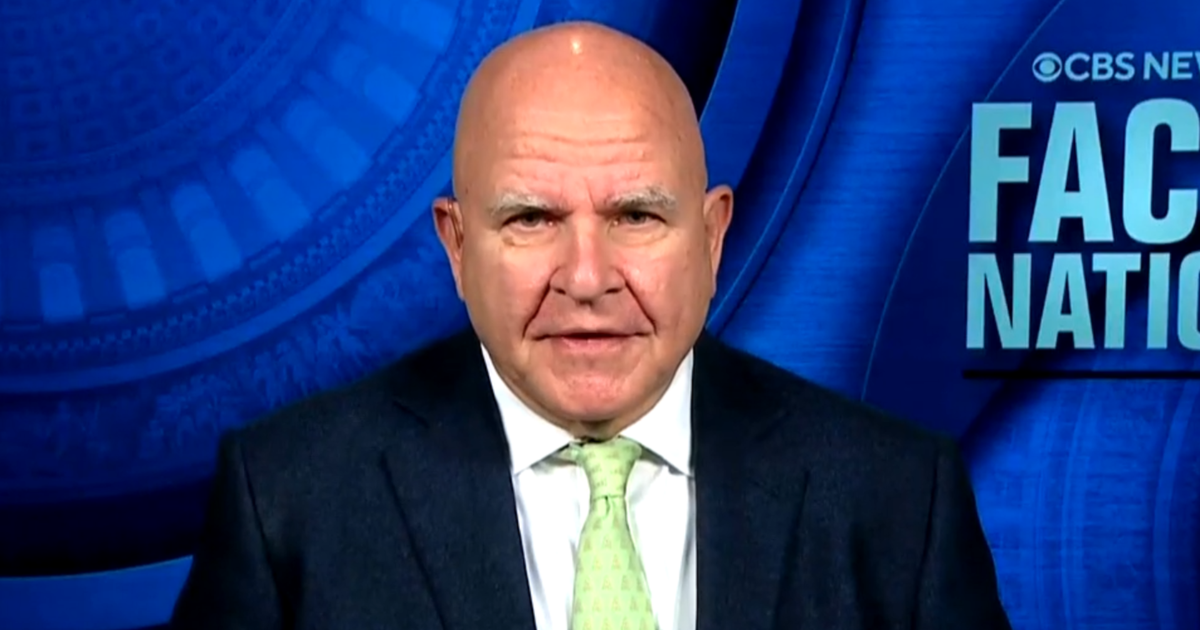CBS News
Some Republicans attack Kamala Harris as “DEI hire.” Here’s what that means

In the days after President Biden endorsed Vice President Kamala Harris to replace him in the 2024 presidential race, several Republican lawmakers suggested she had become the presumptive Democratic nominee on the basis of her gender and race.
Republicans referring to Harris as “DEI” hire
GOP Rep. Tim Burchett of Tennessee called Harris a “DEI vice president,” a reference to diversity, equity and inclusion efforts. Rep. Harriet Hageman of Wyoming called Harris a “DEI hire” and referred to her as “intellectually, just really kind of the bottom of the barrel.” Rep. Glenn Grothman of Wisconsin said in an interview with CBS News affiliate WDJT, in Milwaukee, that “Democrats feel they have to stick with her because of her ethnic background.”
But at this point, Harris, the sitting vice president, has decades of experience in elective office and is a seasoned politician, winning statewide elections in California for the U.S. Senate and state attorney general. She won her first race, for San Francisco district attorney, 20 years ago, in 2004.
Other Republicans say “that’s not where we want to go”
Slamming Harris as a DEI candidate struck other Republicans, including former House Speaker Kevin McCarthy, as “totally stupid and dumb,” he said Tuesday on NBC News’ podcast “Meet the Press NOW.“
Other Republicans, too, have been calling on party colleagues to tamp down the rhetoric. In an interview Thursday with CBS News, Rep. Byron Donalds of Florida said the comments about DEI from his colleagues had been “nipped in the bud” and that he had stressed to them “that’s not where we want to go.”
Speaker of the House Mike Johnson told reporters on Wednesday that the election “is going to be about policies, not personalities” and said Harris’ “ethnicity or gender has nothing to do with this whatsoever.”
JD Vance and “childless cat ladies” remark
Attacks centering on Harris’ gender and race are not new. Supporters of GOP presidential nominee Donald Trump have long targeted Harris with insults like “Joe and the Hoe.” In 2021, Ohio Sen. JD Vance, who is now Trump’s running mate, told Tucker Carlson that the country was run by “a bunch of childless cat ladies,” including Harris.
Harris is a stepmother to two children from her husband’s previous marriage.
On Thursday, Harris’ stepdaughter, Ella Emhoff, posted on Instagram, “I love my three parents.” And earlier, first gentleman Doug Emhoff’s ex-wife told The New York Times in a statement, “For over 10 years, since Cole and Ella were teenagers, Kamala has been a co-parent with Doug and I. She is loving, nurturing, fiercely protective and always present. I love our blended family and am grateful to have her in it.”
Harris and Willie Brown
Critics have also resurfaced an old attack on Harris that alleges her past relationships powered her political ascent. Harris dated Willie Brown in the 1990s, the year before Brown was elected mayor of San Francisco. Brown, who was married but separated while he was dating Harris, appointed her to two state commission posts while he was serving as speaker of the California Assembly. Their relationship ended in 1995, nine years before Harris was elected San Francisco district attorney and later the state’s attorney general.
When Harris was running to be San Francisco’s district attorney in 2003, her ties to Brown made headlines. But Harris defended herself against critics who brought him up.
“I refuse to design my campaign around criticizing Willie Brown for the sake of appearing to be independent when I have no doubt that I am independent of him — and that he would probably right now express some fright about the fact that he cannot control me,” she said in an interview with SF Weekly that same year.
Bias and women running for office
Longstanding double standards likely contribute to the idea some people have that Harris didn’t earn her place in politics; over half of Americans think that women must to do more than men when seeking high political office, a 2023 Pew study found.
As a woman of color, Harris is more likely to be subject to this type of rhetoric, according to Nina Jankowicz, a disinformation researcher and founder of the American Sunlight Project, which aims to identify and expose disinformation. Jankowicz herself has been the victim of gendered attacks, and her appointment to lead the short-lived Disinformation Governance Board under Mr. Biden was met with vitriol from the right.
In a study in 2020 of abuse and disinformation targeting 13 female political candidates that Jankowicz led, 78% of the attacks targeted Harris. That year, as the Democratic vice presidential nominee, Harris was arguably the highest-profile woman in American politics.
“The idea there is to undermine her legitimacy, undermine her professionalism, undermine her accomplishments and appeal to people’s basic misogynistic instinct,” Jankowicz said. “There are people who are alleging that her accomplishments are less than, or that she didn’t earn her place because she is a Black woman.”
“Her terms in the Senate and her record as vice president speaks for itself,” she added.
CBS News
Former Israeli hostages released in truce 1 year ago call for action to release those still held

Former Israeli hostages who were freed from Hamas captivity during a week-long humanitarian pause in fighting exactly one year ago Sunday called for immediate action to secure a deal for the release of those still held.
The only truce in the ongoing Israel-Hamas war on Nov. 24, 2023 – fewer than two months after fighting began – led to the release of 80 Israelis held by militants in Gaza. They were freed in exchange for 240 Palestinians detained in Israeli jails.
Repeated efforts since then by mediators from Qatar, Egypt and the United States to secure another truce and hostage release have failed. Qatar early this month said it was suspending its mediation role until the warring sides show “seriousness.”
Mostafa Alkharouf/Anadolu via Getty Images
Gabriella Leimberg was kidnapped during the Oct. 7, 2023, Hamas attack and was released along with her daughter, Mia, and sister Clara.
“For 53 days, the one thing that kept me going is that we, the people of Israel, the Jewish people, sanctify life — we don’t leave anyone behind,” she said.
Leimberg added: “Everything has already been said and now action is required. We don’t have any more time.”
Around 100 hostages are still in Gaza, and at least a third are believed to be dead.
“I survived and I was fortunate to get my entire family back,” Leimberg said. “I want and demand this for all the families of the hostages.”
Hamas wants Israel to end the war and withdraw all troops from Gaza. Israel has offered only to pause its offensive.
The Palestinian death toll from the war surpassed 44,000 this week, according to Gaza’s Health Ministry, which does not distinguish between civilians and combatants in its count.
Maya Alleruzzo / AP
Danielle Aloni, who was kidnapped with her five-year-old daughter, Emelia, and freed after 49 days, spoke at the ceremony of the “increasing danger” those still being held face every day.
She said those still in captivity “suffer physical, sexual, and psychological abuse, their identity and dignity crushed anew each day”.
“It took the Israeli government about two months to secure a deal for me and 80 other Israeli hostages. Why is it taking over a year to reach another deal to free them from this hell?” asked Aloni, whose brother-in-law, David Cunio, and his brother, Ariel Cunio, are still being held.
She emphasized that, even though she and the other hostages gained their freedom a year ago, “we haven’t really left the tunnels,” — referring to Hamas’ underground tunnels where many of the hostages were held.
“The feeling of suffocation, the terrible humidity, the stench — these sensations still envelop us,” Aloni said.
“If people could truly understand what it means to be held in subhuman conditions in tunnels, surrounded by terrorists for 54 days — there’s no way they would allow hostages to remain there for 415 days!” said Raz Ben Ami, who was released in the deal a year ago.
Her husband, Ohad, is still among those being held.
Ben Ami called for a ceasefire to “bring back all the hostages as quickly as possible”.
CBS News
Couple charged for allegedly stealing $1 million from Lululemon in convoluted retail theft scheme

A couple from Connecticut faces charges for allegedly taking part in an intricate retail theft operation targeting the apparel company Lululemon that may have amounted to $1 million worth of stolen items, according to a criminal complaint.
The couple, Jadion Anthony Richards, 44, and Akwele Nickeisha Lawes-Richards, 45, were arrested Nov. 14 in Woodbury, Minnesota, a suburb of Minneapolis-St. Paul. Richards and Lawes-Richards have been charged with one count each of organized retail theft, which is a felony, the Ramsey County Attorney’s Office said. They are from Danbury, Connecticut.
The alleged operation impacted Lululemon stores in multiple states, including Minnesota.
“Because of the outstanding work of the Roseville Police investigators — including their new Retail Crime Unit — as well as other law enforcement agencies, these individuals accused of this massive retail theft operation have been caught,” a spokesperson for the attorney’s office said in a statement on Nov. 18. “We will do everything in our power to hold these defendants accountable and continue to work with our law enforcement partners and retail merchants to put a stop to retail theft in our community.”
Both Richards and Lawes-Richards have posted bond as of Sunday and agreed to the terms of a court-ordered conditional release, according to the county attorney. For Richards, the court had set bail at $100,000 with conditional release, including weekly check-ins, or $600,000 with unconditional release. For Lawes-Richards, bail was set at $30,000 with conditional release and weekly check-ins or $200,000 with unconditional release. They are scheduled to appear again in court Dec. 16.
Prosecutors had asked for $1 million bond to be placed on each half of the couple, the attorney’s office said.
Richards and Lawes-Richards are accused by authorities of orchestrating a convoluted retail theft scheme that dates back to at least September. Their joint arrests came one day after the couple allegedly set off store alarms while trying to leave a Lululemon in Roseville, Minnesota, and an organized retail crime investigator, identified in charging documents by the initials R.P., recognized them.
The couple were allowed to leave the Roseville store. But the investigator later told an officer who responded to the incident that Richards and Lawes-Richards were seasoned shoplifters, who apparently stole close to $5,000 worth of Lululemon items just that day and were potentially “responsible for hundreds of thousands of dollars in loss to the store across the country,” according to the complaint. That number was eventually estimated by an investigator for the brand to be even higher, with the criminal complaint placing it at as much as $1 million.
Richards and Lawes-Richards allegedly involved other individuals in their shoplifting pursuits, but none were identified by name in the complaint. Authorities said they were able to successfully pull off the thefts by distracting store employees and later committing fraudulent returns with the stolen items at different Lululemon stores.
“Between October 29, 2024 and October 30, 2024, RP documented eight theft incidents in Colorado involving Richards and Lawes-Richards and an unidentified woman,” authorities wrote in the complaint, describing an example of how the operation would allegedly unfold.
“The group worked together using specific organized retail crime tactics such as blocking and distraction of associates to commit large thefts,” the complaint said. “They selected coats and jackets and held them up as if they were looking at them in a manner that blocked the view of staff and other guests while they selected and concealed items. They removed security sensors using a tool of some sort at multiple stores.”
CBS News contacted Lululemon for comment but did not receive an immediate reply.
CBS News
Former Trump national security adviser says next couple months are “really critical” for Ukraine

Washington — Lt. Gen. H.R. McMaster, a former national security adviser to Donald Trump, said Sunday that the upcoming months will be “really critical” in determining the “next phase” of the war in Ukraine as the president-elect is expected to work to force a negotiated settlement when he enters office.
McMaster, a CBS News contributor, said on “Face the Nation with Margaret Brennan” that Russia and Ukraine are both incentivized to make “as many gains on the battlefield as they can before the new Trump administration comes in” as the two countries seek leverage in negotiations.
With an eye toward strengthening Ukraine’s standing before President-elect Donald Trump returns to office in the new year, the Biden administration agreed in recent days to provide anti-personnel land mines for use, while lifting restrictions on Ukraine’s use of U.S.-made longer range missiles to strike within Russian territory. The moves come as Ukraine marked more than 1,000 days since Russia’s invasion in February 2022.
Meanwhile, many of Trump’s key selection for top posts in his administration — Rep. Mike Waltz for national security adviser and Sens. Marco Rubio for secretary of state and JD Vance for Vice President — haven’t been supportive of providing continued assistance to Ukraine, or have advocated for a negotiated end to the war.
CBS News
McMaster said the dynamic is “a real problem” and delivers a “psychological blow to the Ukrainians.”
“Ukrainians are struggling to generate the manpower that they need and to sustain their defensive efforts, and it’s important that they get the weapons they need and the training that they need, but also they have to have the confidence that they can prevail,” he said. “And any sort of messages that we might reduce our aid are quite damaging to them from a moral perspective.”
McMaster said he’s hopeful that Trump’s picks, and the president-elect himself, will “begin to see the quite obvious connections between the war in Ukraine and this axis of aggressors that are doing everything they can to tear down the existing international order.” He cited the North Korean soldiers fighting on European soil in the first major war in Europe since World War II, the efforts China is taking to “sustain Russia’s war-making machine,” and the drones and missiles Iran has provided as part of the broader picture.
“So I think what’s happened is so many people have taken such a myopic view of Ukraine, and they’ve misunderstood Putin’s intentions and how consequential the war is to our interests across the world,” McMaster said.
On Trump’s selections for top national security and defense posts, McMaster stressed the importance of the Senate’s advice and consent role in making sure “the best people are in those positions.”
McMaster outlined that based on his experience, Trump listens to advice and learns from those around him. And he argued that the nominees for director of national intelligence and defense secretary should be asked key questions like how they will “reconcile peace through strength,” and what they think “motivates, drives and constrains” Russian President Vladimir Putin.
Trump has tapped former Rep. Tulsi Gabbard to be director of national intelligence, who has been criticized for her views on Russia and other U.S. adversaries. McMaster said Sunday that Gabbard has a “fundamental misunderstanding” about what motivates Putin.
More broadly, McMaster said he “can’t understand” the Republicans who “tend to parrot Vladimir Putin’s talking points,” saying “they’ve got to disabuse themselves of this strange affection for Vladimir Putin.”
Meanwhile, when asked about Trump’s recent selection of Sebastian Gorka as senior director for counterterrorism and deputy assistant to the president, McMaster said he doesn’t think Gorka is a good person to advise the president-elect on national security. But he noted that “the president, others who are working with him, will probably determine that pretty quickly.”










